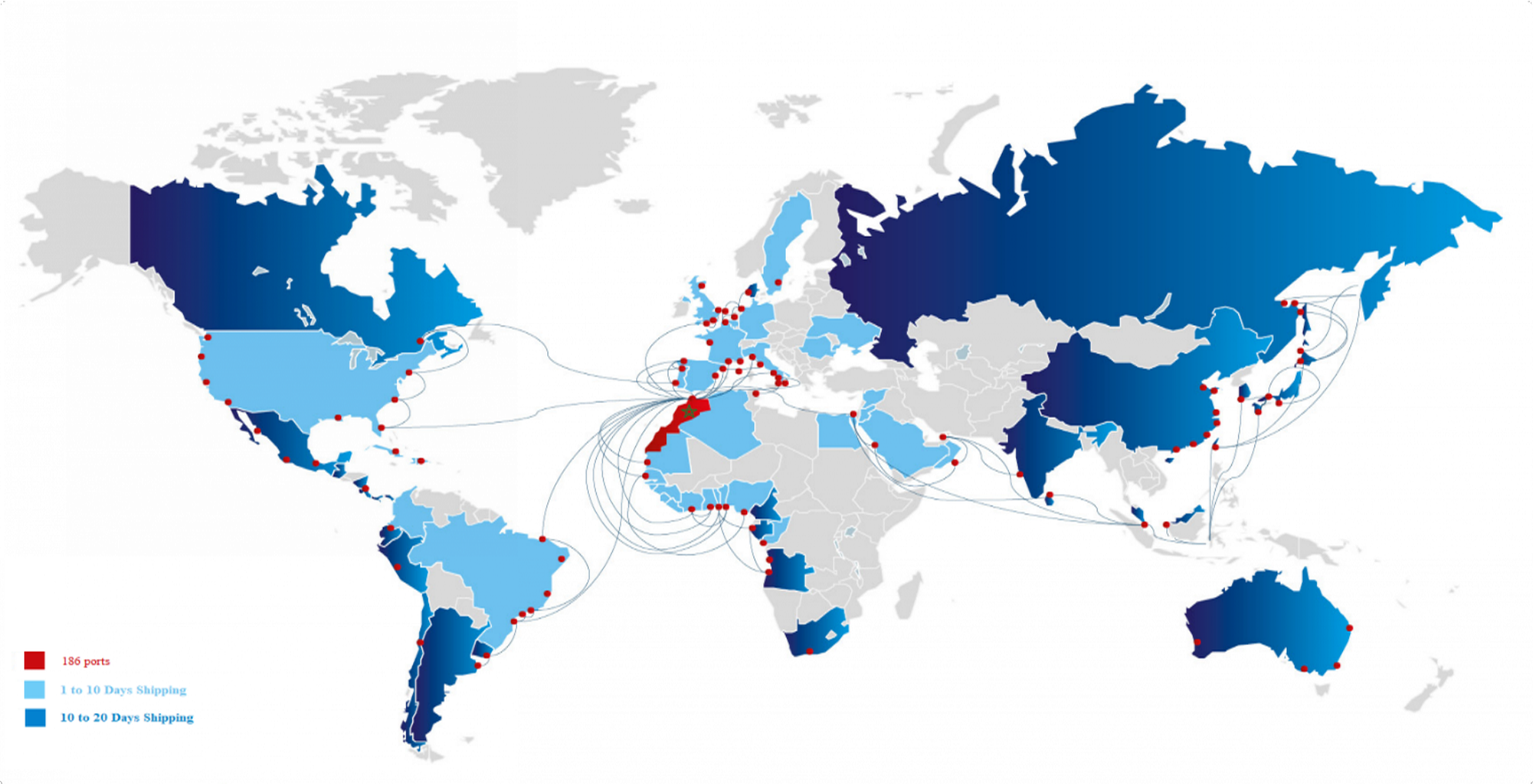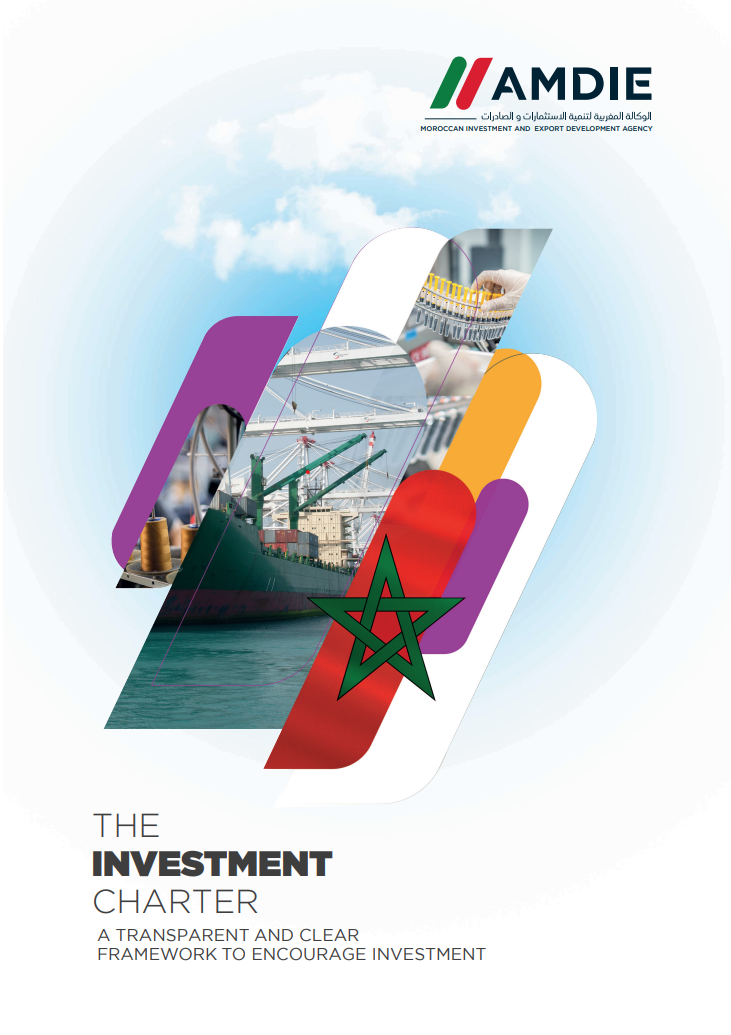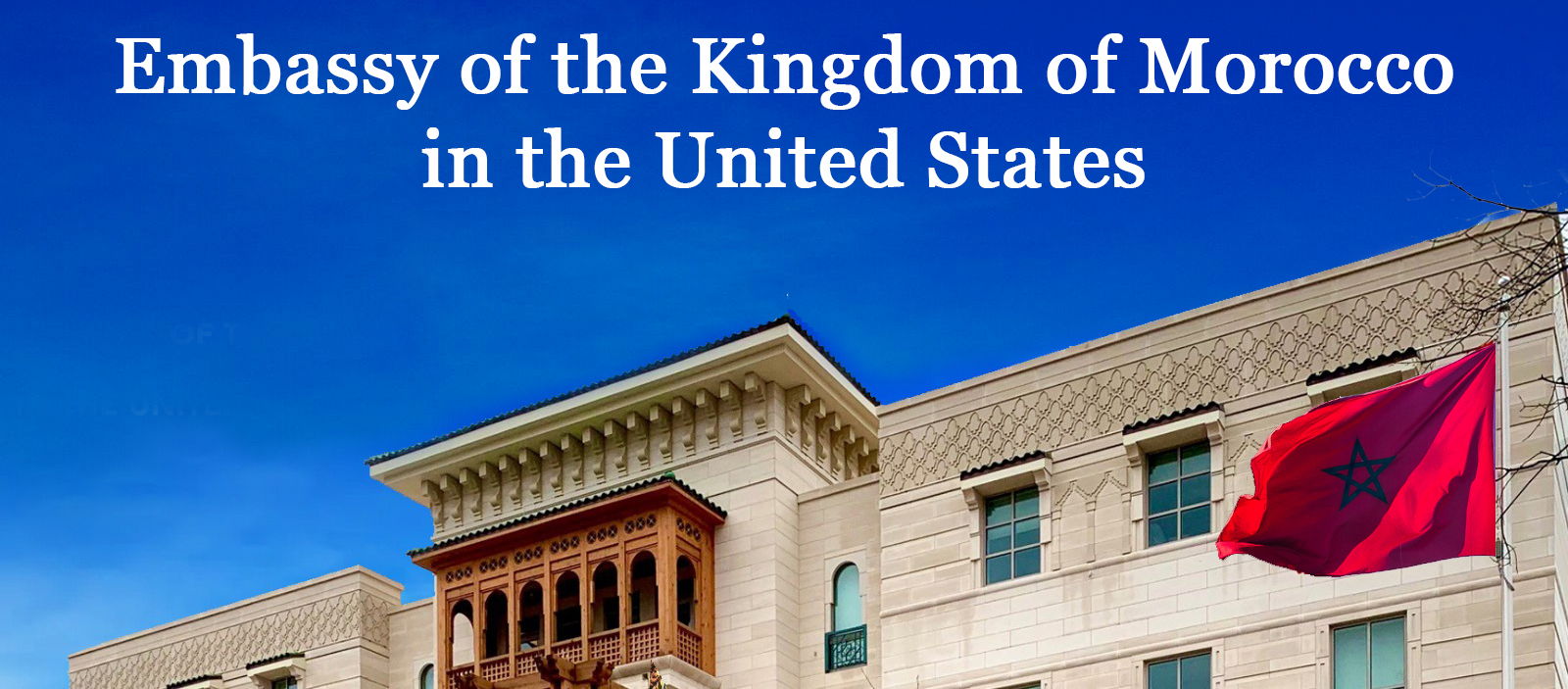- Home
- Embassy
- About Morocco
-
Morocco-US Relationship
Morocco-US Relationship
- Visit Morocco
- Consular Services
- Press & media
- Contact Us
Doing Business in Morocco
Competitiveness

Maritime Commercial Routes (Graph source : Tanger-Med Port)
Under the leadership of H.M. King Mohammed VI, Morocco has achieved remarkable development in infrastructure and spearheaded the growth of economic sectors from the ground up. These sectors include automotive, aerospace, renewable energy, and others.
Word Class Infrastructure:

First High-speed train in Africa

Eighteen International Airports
Over 120 industrial and Economic Zones
Morocco has proven to be a reliable business partner with a strong macroeconomic landscape that insulates its domestic economy from global volatility. Over the past two decades, Morocco has tripled its GDP while maintaining a steady inflation rate. Today, Morocco boasts a resilient economic environment supported by a conducive legal and regulatory framework, with unrestricted repatriation of profits and capital for foreign investors.
Morocco has ratified 72 investment treaties for the promotion and protection of investments and 62 economic agreements, including those with the United States and most EU nations, aimed at eliminating double taxation of income or gains. Foreign investors are attracted by the country’s stability, Tax incentives, skilled labor at competitive wages, proximity to European and African markets, and access to other markets via free trade agreements.
Morocco’s Access to African Markets

Morocco is actively engaged in enhancing South-South Cooperation with various African nations, aiming to foster a more prosperous Africa. Over the last two decades, His Majesty has undertaken over 50 visits to African countries, resulting in the signing of more than 1,000 agreements in diverse sectors. This proactive strategy has positioned Morocco as the second largest investor in Africa and first in West Africa.
As a result of these efforts, there has been a significant surge in Morocco's investments in Africa, amounting to 85% of its total Foreign Direct Investment (FDI).
Investment Charter
 Under the "New Investment Charter," efforts are underway to further improve the business climate in Morocco. This includes the development of new industrial free zones in each of the country's 12 regions and extending business incentives to qualifying companies outside these zones. Such incentives include comparable benefits for export-oriented industries and a five-year corporate tax exemption for new industrial companies.
Under the "New Investment Charter," efforts are underway to further improve the business climate in Morocco. This includes the development of new industrial free zones in each of the country's 12 regions and extending business incentives to qualifying companies outside these zones. Such incentives include comparable benefits for export-oriented industries and a five-year corporate tax exemption for new industrial companies.
Of significant note, the new charter also recognizes indirect exporter status, a provision that is expected to bolster support for Morocco's automotive industry.
To encourage investments in various regions, the charter offers territorial primes of up to 15% of eligible investments for projects established in specific provinces. Additionally, an extra 5% bonus is granted on eligible investments for projects operating in priority sectors such as tourism, industry, digital economy, transportation, outsourcing, logistics, cultural industries, aquaculture, renewable energy, and waste management.
Embassy of the Kingdom of Morocco in Washington DC
+1 (202) 462-79793508 International Dr NW, Washington, DC 20008
Consulate Section in Washington DC
+1 (202) 499-10501211 Connecticut Ave NW #312, Washington, DC 20036
Consulate General in New York
+1 (212) 758-262555 Broadway, New York, NY 10006

 Menu
Menu